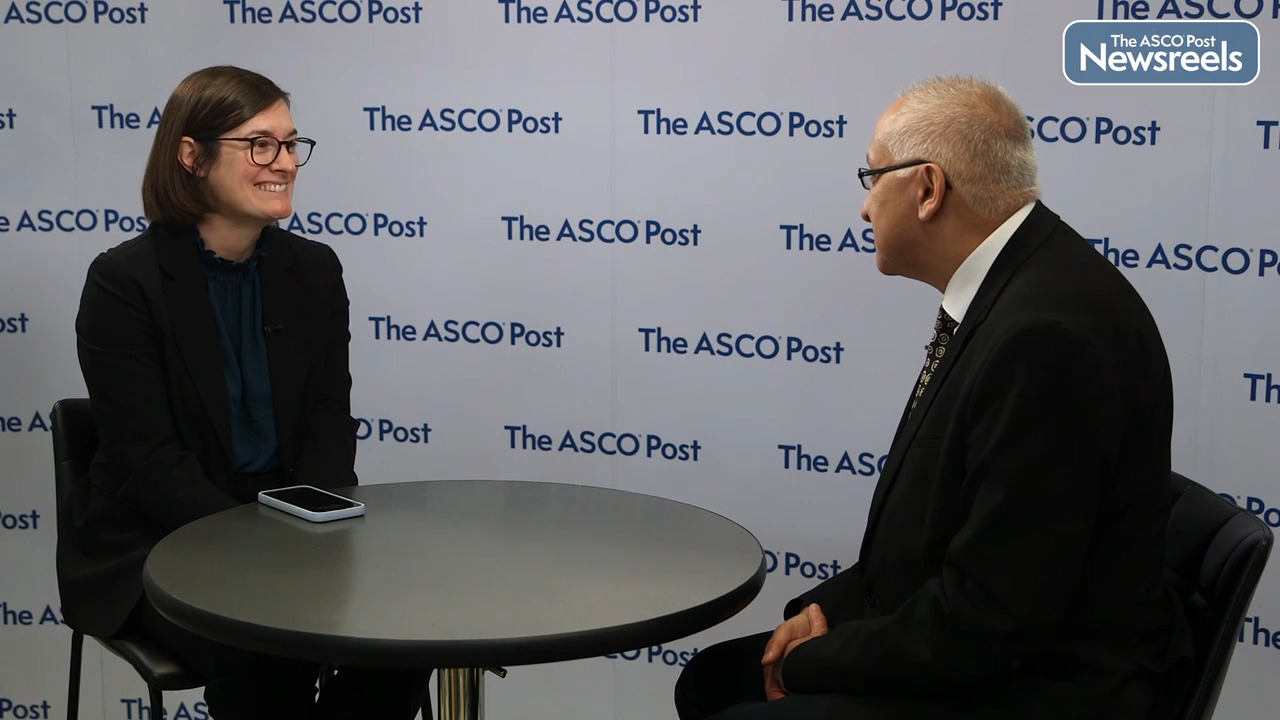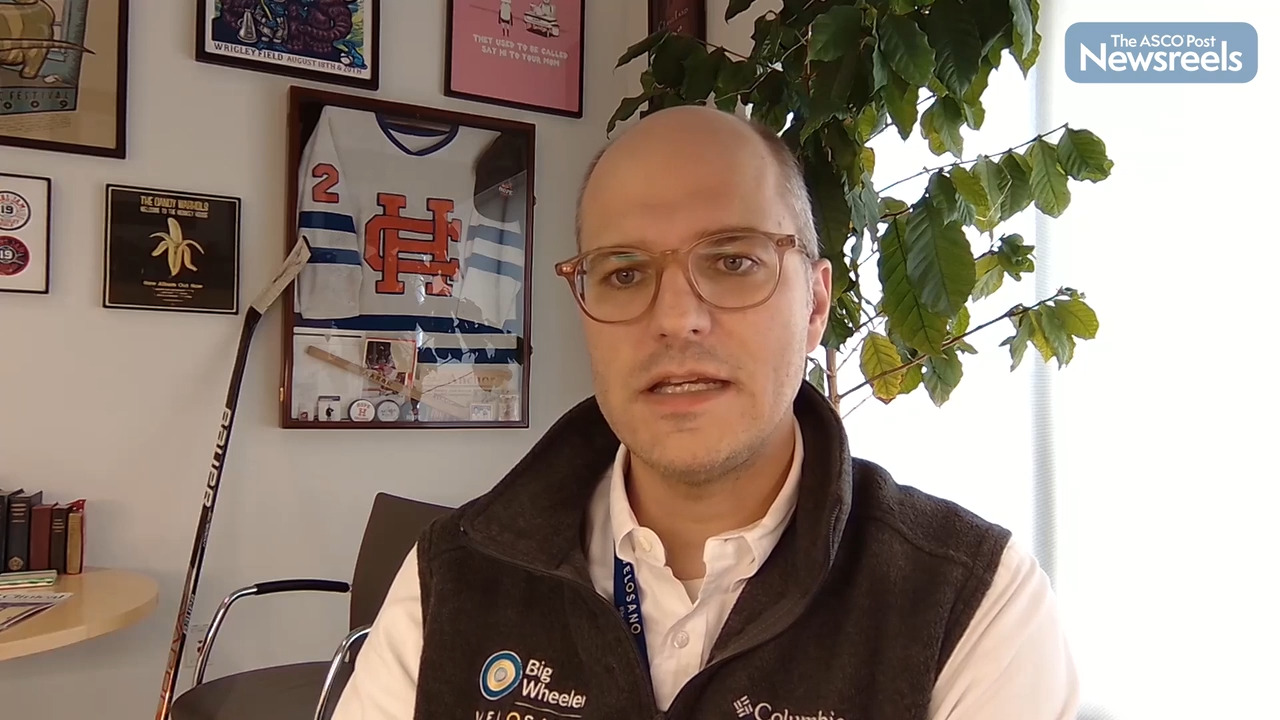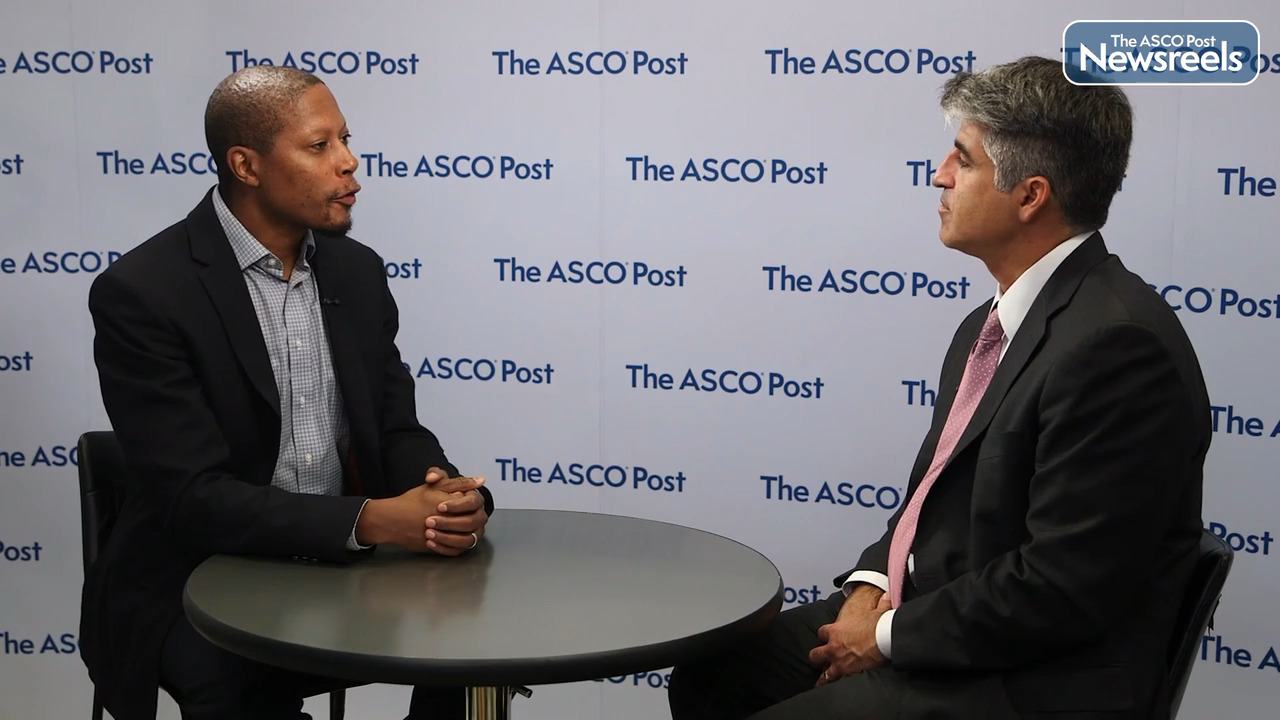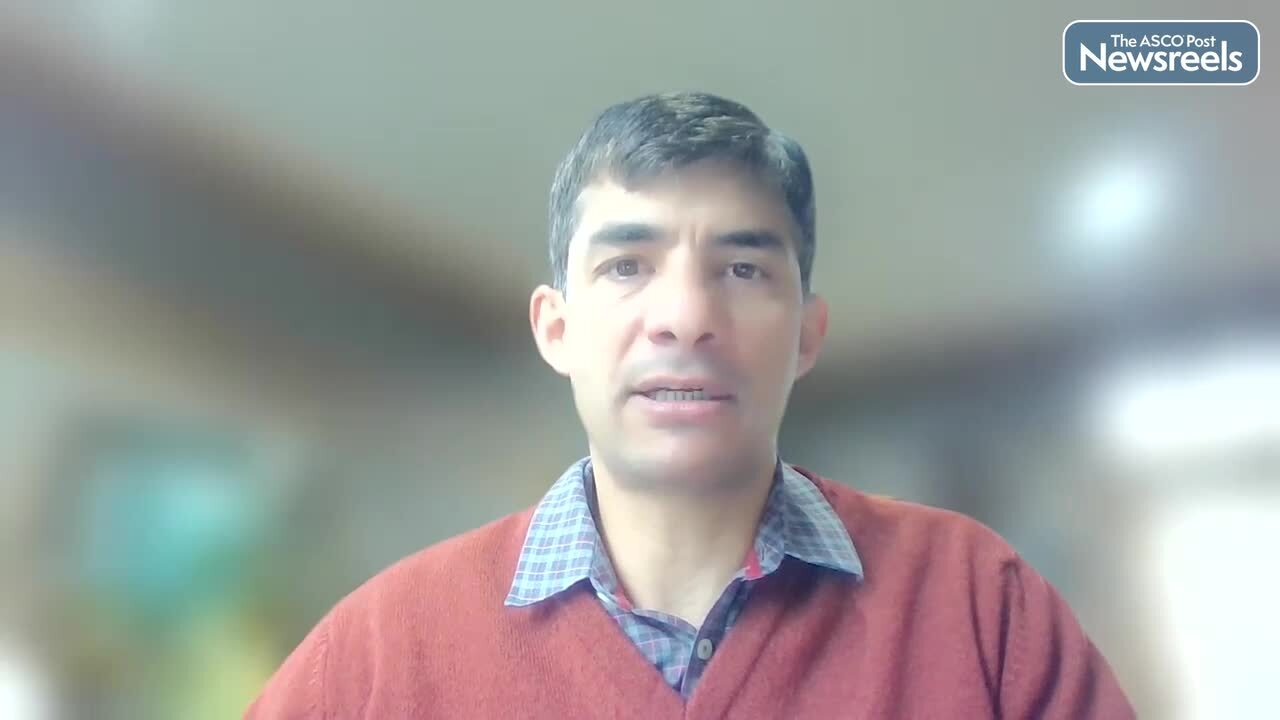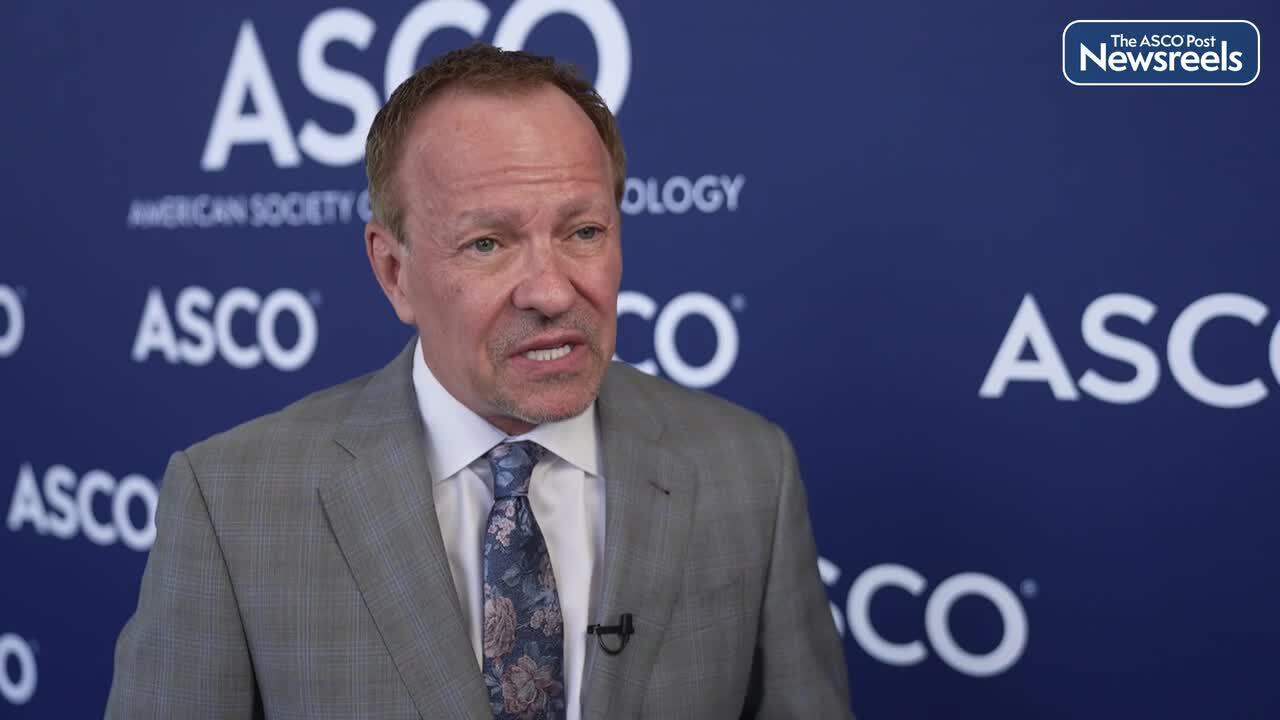Thierry Conroy, MD, on Rectal Cancer: Long-Term Results on mFOLFIRINOX vs Preoperative Chemoradiation Therapy
2023 ASCO Annual Meeting
Thierry Conroy, MD, of the Institut de Cancérologie de Lorraine, discusses phase III findings from the PRODIGE 23 trial, showing that neoadjuvant chemotherapy with mFOLFIRINOX followed by chemoradiotherapy, surgery, and adjuvant chemotherapy improved all outcomes, including overall survival, in patients with locally advanced rectal cancer compared with standard chemoradiotherapy, surgery, and adjuvant chemotherapy (Abstract LBA3504).
Transcript
Disclaimer: This video transcript has not been proofread or edited and may contain errors.
Prodige 23 is a phase three randomized trial that we perform in France in 35 centers. And we have presented the seven-year result of that study. And we confirm all the benefit we had in this study, and we already published. It was a comparison between the standard of care preoperative chemoradiation ventium surgery and six month of adjuvant chemotherapy in patients with locally advanced rectal cancer. And we compare it to three month of induction chemotherapy using the modify Folfirinox regimen than preoperative chemo radiation TME and three month of adjuvant chemotherapy. All patients receive six month of chemotherapy.
We have now a follow-up of 82 month. It means quite seven year, and we confirm a very important reduction of metastases as from 10%. We have still a benefit in the primary endpoint, which is DFS. Also benefiting cancer specific survival. One important point is that we had no increase in local relapse in the experimental arm, which is lower than 5%. And the other point is that the survival at metastatic disease was exactly the same in the two arms, and it was not reduced in the experimental arm.
We had an overall survival benefit, and this is the major point of this study, as we had the 7% overall survival benefit when quality of life improve faster and higher levels in the experimental alarm. To conclude, this is the very positive trial and very good news for patients. The next step will be to know if with induction chemotherapy with Folfirinox some patients may not receive chemo chemo radiation, especially in case of good response to induction chemotherapy. The other point is to know if induction chemotherapy will increase the rate of organ preservation.
Related Videos
The ASCO Post Staff
Bobbie J. Rimel, MD, of Cedars-Sinai Medical Center, and Mansoor R. Mirza, MD, of Denmark’s Rigshospitalet and Copenhagen University Hospital, discuss new findings on dostarlimab-gxly plus carboplatin/paclitaxel, which improved progression-free survival while maintaining health-related quality of life, further supporting its use as a standard of care in primary advanced or recurrent endometrial cancer (Abstract 5504).
The ASCO Post Staff
Aaron T. Gerds, MD, of Cleveland Clinic Taussig Cancer Institute, talks about treating the anemia many patients with myelofibrosis experience because of JAK inhibitor therapy. The ACE-536-MF-001 study showed that luspatercept improved anemia and transfusion burden in this population, with a safety profile consistent with that in previous studies (Abstract 7016).
The ASCO Post Staff
Tycel J. Phillips, MD, and Alex F. Herrera, MD, both of the City of Hope National Medical Center, discuss findings from the POLARIX study, which provided the largest prospectively collected circulating tumor DNA (ctDNA) data set on patients with previously untreated diffuse large B-cell lymphoma. Achieving ctDNA-negative status was associated with improved outcomes when patients were treated with polatuzumab vedotin-piiq plus combination chemotherapy vs combination chemotherapy alone (Abstract 7523).
The ASCO Post Staff
Shailender Bhatia, MD, of the University of Washington and Fred Hutchinson Cancer Center, discusses phase I/II results on the efficacy of nivolumab with or without ipilimumab in patients with recurrent or metastatic Merkel cell carcinoma. The study found that, for this rare and aggressive skin cancer, nivolumab showed clinical activity in advanced disease. However, these results from CheckMate 358 do not suggest an additional benefit with ipilimumab added to nivolumab (Abstract 9506).
The ASCO Post Staff
Bradley J. Monk, MD, of the University of Arizona, Phoenix, and Creighton University, discusses phase III findings from the KEYNOTE-826 study of overall survival results in patients with persistent, recurrent, or metastatic cervical cancer. Study participants received first-line treatment of pembrolizumab plus chemotherapy, with or without bevacizumab, which reduced the risk of death by up to 40% in three different subsets of patients (Abstract 5500).
